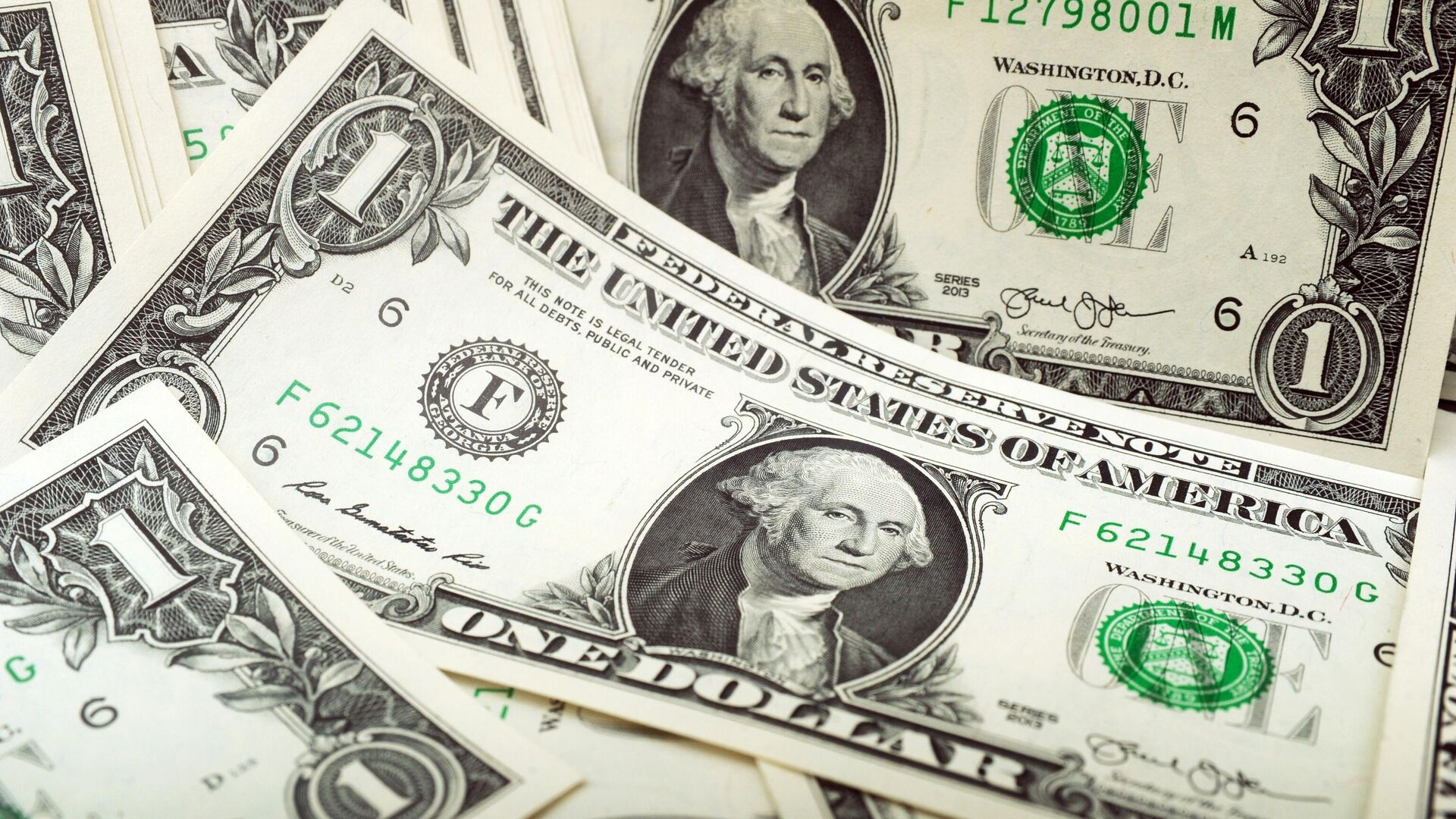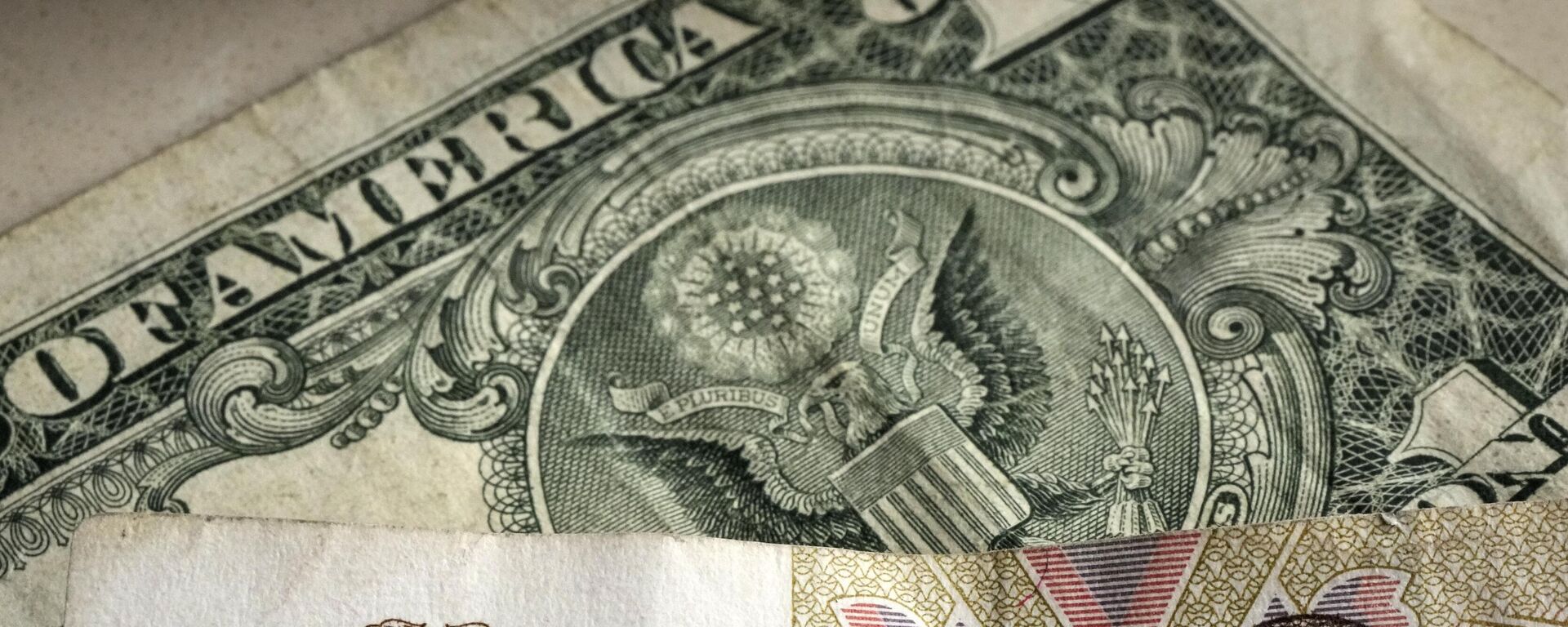https://sputnikglobe.com/20240614/will-average-western-citizens-pay-the-price-for-g7s-theft-of-russian-funds-1118942394.html
Will Average Western Citizens Pay the Price for G7’s Theft of Russian Funds?
Will Average Western Citizens Pay the Price for G7’s Theft of Russian Funds?
Sputnik International
The decision of US and its allies could spell dire consequences for the economic stability of the West, as they supported seizing the interest from Russian assets to fund the Ukraine.
2024-06-14T03:29+0000
2024-06-14T03:29+0000
2024-06-14T08:46+0000
analysis
us
russia
ukraine
george szamuely
g7
ukraine crisis
ukrainian conflict
sanctions
assets
https://cdn1.img.sputnikglobe.com/img/07e7/06/13/1111298957_0:158:3077:1889_1920x0_80_0_0_d24f68bdbba5df1aa80575f4075dd4cc.jpg
News of the development emerged Thursday, although the group of Western economies has yet to formally approve the action. Italian Prime Minister Giorgia Meloni confirmed the reports, drawing a distinction between the expropriation of earned interest and the outright seizure of Russian savings held in European banks. “We are certainly not talking about confiscating these assets," Meloni claimed at the G7 meeting in Fasano.But the move is nonetheless highly controversial in the precedent it sets, claims analyst Dr. George Szamuely, and may be seen as a prelude to the wholesale theft of the funds. The analyst at the London-based Global Policy Institute joined Sputnik’s The Final Countdown program on Thursday to discuss how the development will harm financially strained Western citizens.“It doesn't in any way conform to international law,” said Szamuely of the G7’s plan, “and let's keep in mind this has never been done before.”The majority of frozen Russian assets at play are held in European banks, noted Szamuely. Leaders across the continent have urged restraint as plans involving Russian funds have been discussed in recent months, fearing repercussions and reputational damage to European financial institutions.Yet, in a striking demonstration of the United States’ power over its NATO allies, Washington eventually prevailed and forced through the plan.The move carries significant risks in its weaponization of the Western financial system, with observers claiming the confiscation will likely convince global financial interests to further decouple out of fear of the safety of their own assets.“Isn't this going to backfire on the US and some of the G7 leaders?” Wong asked. “Because ultimately that just means you're not going to get the foreign investments from Russia or China, maybe Saudi Arabia, whoever their next target is going to be.”China is one of the largest holders of US treasury bonds, the financial instruments the United States uses to finance its substantial deficit spending. But last month the country sold off a record $53.3 billion in US bonds, sounding alarm bells for observers who fear the consequences of countries divesting from US treasuries. The trend has forced the US Federal Reserve to take on unprecedented powers in purchasing US treasury bonds when there is a shortage of foreign buyers, which some believe helps drive inflation.But the consequences of the loss of dollar hegemony could prove even more disastrous. Observers point out that the trend is already well underway with Russia, China, India and other countries increasingly inking deals to pursue trade denominated in their own currencies. The BRICS bloc has also investigated the possibility of creating its own currency.The dollar’s role as the de facto global reserve currency is so crucial that it has helped drive US foreign policy, with analysts claiming Libyan leader Muammar Gaddafi’s plans to create a gold-backed African currency provided impetus for his Western-backed overthrow.Thursday’s announcement, observers worry, brings the United States one step closer to that bleak reality.
https://sputnikglobe.com/20240523/wests-plan-to-seize-russian-assets-legal-loophole-or-theft-1118593293.html
russia
ukraine
Sputnik International
feedback@sputniknews.com
+74956456601
MIA „Rossiya Segodnya“
2024
John Miles
https://cdn1.img.sputnikglobe.com/img/07e8/01/19/1116388787_0:0:1316:1316_100x100_80_0_0_77e70d36afd983012b1c5d38ddb84156.jpg
John Miles
https://cdn1.img.sputnikglobe.com/img/07e8/01/19/1116388787_0:0:1316:1316_100x100_80_0_0_77e70d36afd983012b1c5d38ddb84156.jpg
News
en_EN
Sputnik International
feedback@sputniknews.com
+74956456601
MIA „Rossiya Segodnya“
Sputnik International
feedback@sputniknews.com
+74956456601
MIA „Rossiya Segodnya“
John Miles
https://cdn1.img.sputnikglobe.com/img/07e8/01/19/1116388787_0:0:1316:1316_100x100_80_0_0_77e70d36afd983012b1c5d38ddb84156.jpg
russian assets, funds from ukraine, how west funds ukraine, western financial system, ukrainian crisis consequences
russian assets, funds from ukraine, how west funds ukraine, western financial system, ukrainian crisis consequences
Will Average Western Citizens Pay the Price for G7’s Theft of Russian Funds?
03:29 GMT 14.06.2024 (Updated: 08:46 GMT 14.06.2024) Analysts worry Thursday’s announcement could spell dire consequences for the economic stability of the United States and its allies, as G7 leaders reached a deal this week to seize the interest from Russian assets to fund the ongoing proxy war in Ukraine.
News of the development emerged Thursday, although the group of Western economies has yet to formally approve the action. Italian Prime Minister Giorgia Meloni
confirmed the reports, drawing a distinction between the expropriation of earned interest and the outright seizure of Russian savings held in European banks. “
We are certainly not talking about confiscating these assets," Meloni claimed at the G7 meeting in Fasano.
But the move is nonetheless highly controversial in the precedent it sets, claims analyst Dr. George Szamuely, and may be seen as a prelude to the wholesale theft of the funds. The analyst at the London-based Global Policy Institute joined
Sputnik’s The Final Countdown program on Thursday to discuss how the development will harm financially strained Western citizens.
“It doesn't in any way conform to international law,” said Szamuely of the G7’s plan, “and let's keep in mind this has never been done before.”
“It is customary to freeze accounts of your adversaries during wartime,” the author continued. “It is not customary to then help yourself to that money and put it to whatever uses you want and, in this case, the uses it's being put to are for Ukraine to buy weapons in order to kill Russians. So Russian money is being used to kill Russians. That is just so beyond outrageous.”
The majority of frozen Russian assets at play are held in European banks, noted Szamuely. Leaders across the continent have urged restraint as plans involving Russian funds have been discussed in recent months, fearing repercussions and reputational damage to European financial institutions.
Yet, in a striking demonstration of
the United States’ power over its NATO allies, Washington eventually prevailed and forced through the plan.
The move carries significant risks in its weaponization of the Western financial system, with observers claiming the confiscation will likely convince global financial interests to further decouple out of fear of the safety of their own assets.
“China has a lot of American assets and European assets, and assets around the world,” noted host Angie Wong. “That could be seized at any moment. And the same treatment could be made of them if they don't play the way the G7 wants them to play.”
“Isn't this going to backfire on the US and some of the G7 leaders?” Wong asked. “Because ultimately that just means you're not going to get the foreign investments from Russia or China, maybe Saudi Arabia, whoever their next target is going to be.”
“I would've thought so and I would've thought that it would elevate pressure on China, Russia, India, and other countries to set up their own alternative financial systems,” said Szamuely, referring to efforts that are already under way within the BRICS economic bloc.
China is one of the
largest holders of US treasury bonds, the financial instruments the United States uses to finance its substantial deficit spending. But last month the country
sold off a record $53.3 billion in US bonds, sounding alarm bells for observers who fear the consequences of countries divesting from US treasuries. The trend has forced the US Federal Reserve to take on unprecedented powers in purchasing US treasury bonds when there is a shortage of foreign buyers, which some believe helps drive inflation.
But the consequences of the loss of dollar hegemony could prove even more disastrous. Observers point out that the trend is already well underway with Russia, China, India and other countries increasingly inking deals to pursue trade denominated in their own currencies. The BRICS bloc has also investigated the possibility of creating its own currency.
The dollar’s role as the de facto global reserve currency is so crucial that it has helped drive US foreign policy, with analysts claiming Libyan leader Muammar Gaddafi’s
plans to create a gold-backed African currency provided impetus for his Western-backed overthrow.
“[Dedollarization] means the demise of American power, because American power is based on the ability to pay bills by printing money,” noted US economist Paul Craig Roberts. “That would mean a massive US inflation. It'd be a kind of inflation that results from currency collapse. There’s nothing monetary authorities can do about that. Those kinds of inflations are the real inflations, the real deadly ones.”
Thursday’s announcement, observers worry, brings the United States one step closer to that bleak reality.




